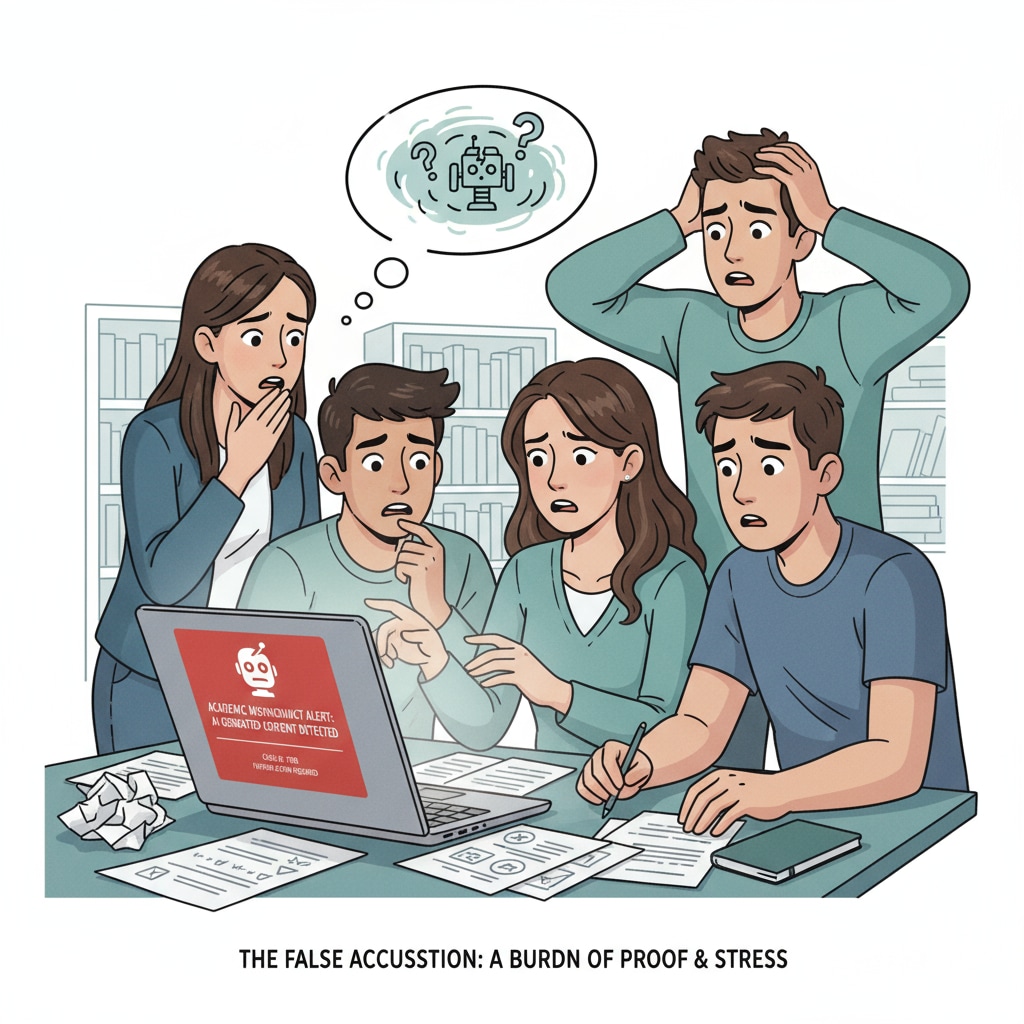As AI continues to revolutionize various aspects of our lives, its presence in the academic realm has brought about a new set of challenges, particularly in the form of university responsibilities in false accusations of AI use and academic penalties. The widespread adoption of AI tools has made it increasingly difficult for universities to accurately distinguish between original student work and that which may have been assisted by AI. This has led to a disturbing trend of false accusations, which not only harm students but also undermine the principles of academic fairness.

The Rise of AI in Education and False Accusations
AI has become an integral part of modern education. Tools like grammar checkers and writing assistants powered by AI are now commonly used by students. However, this has created a gray area where universities struggle to determine if a student has crossed the line into academic dishonesty. For example, a student might use an AI tool to improve their grammar and sentence structure, but a poorly calibrated detection system could wrongly flag their work as AI-generated. As a result, innocent students are being unjustly accused of using AI, facing severe academic penalties.

The Impact on Students’ Rights
False accusations of AI use can have a devastating impact on students. These accusations can damage a student’s reputation, affecting their future academic and career prospects. Students who are wrongly accused may experience significant stress and anxiety. In some cases, they may even be forced to drop out of their courses or programs. Moreover, the burden of proof often lies with the students, who must prove their innocence against an automated or subjective assessment. This places an unfair burden on them, as they may lack the resources or expertise to defend themselves effectively.
Universities’ Obligations in Ensuring Fair Judgments
Universities have a responsibility to ensure fair and accurate academic assessments. They need to invest in reliable AI detection tools that are based on sound algorithms and are regularly updated. In addition, universities should establish clear guidelines and criteria for determining AI use. These guidelines should be communicated clearly to students, so they are aware of what is considered acceptable and unacceptable. Furthermore, universities should provide students with an opportunity to appeal false accusations, with a fair and unbiased review process. Inside Higher Ed article on AI in academia
In conclusion, the issue of university responsibilities in false accusations of AI use and academic penalties is a complex one. It requires a balanced approach that respects the rights of students while maintaining academic integrity. By investing in proper detection methods, providing clear guidelines, and offering fair appeal processes, universities can help prevent unjust accusations and uphold the principles of academic justice. The Chronicle of Higher Education on addressing AI in education
Readability guidance: The article uses short paragraphs to convey key points. Lists could be added in future expansions to further clarify ideas. Passive voice is minimized, and transition words are used to enhance flow. Each section focuses on a distinct aspect of the issue, ensuring a clear and logical structure.


